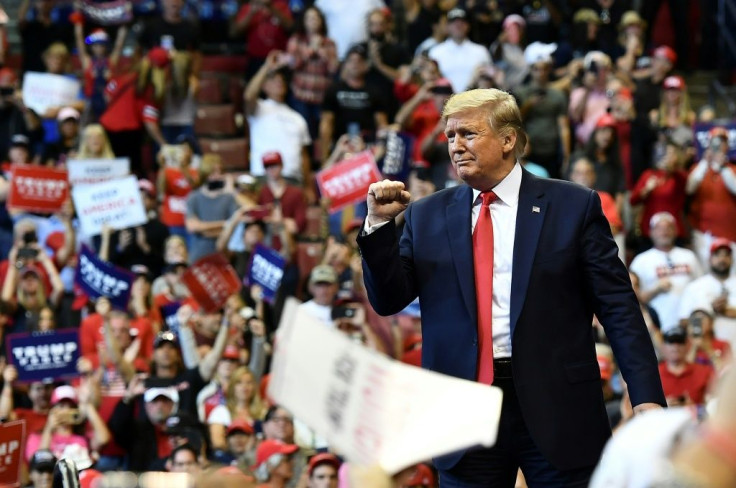Trump Signs Hong Kong Protest Rights Bill: What Do These Laws Mean?

Rejecting China’s objections, President Donald Trump signed two bills supporting the Hong Kong protesters into law on Wednesday. The laws cover provisions for sanctions and the slashing of trade privileges.
Significantly, the bills were signed by President Trump at a time he is negotiating with China to clinch a “phase one” trade deal.
Reacting strongly, on Thursday local time, the Hong Kong government “expressed strong opposition” to the bills being signed into law and said it “extremely regrets the U.S. repeatedly ignoring Hong Kong’s concern regarding the two bills,” according to the CNBC report.
The statement by Hong Kong said the bills are an outright “intervention of Hong Kong’s internal affairs, unnecessary and without grounds and harm the relationship and interests between Hong Kong and the U.S.”
A spokesman of the government also said the bills would send a “wrong message” to protesters and “will not help to ease Hong Kong’s situation.”
Congress had sent the bills to the President with huge bipartisan support.
The special trading status to face annual review
Among the bills, the first one requires the U.S State Department to certify once a year that Hong Kong is sufficiently autonomous to be eligible for its special U.S. trading status.
Such a privileged designation spares the city from tariffs applicable to China. The bill also seeks sanctions on people responsible for human rights abuse in Hong Kong.
The law also enforces a ban on the sale of tear gas and rubber bullets to Hong Kong police.
However, in the personal signing statement, Trump sounded diplomatic saying he signed the bills “out of respect for President Xi, China, and the people of Hong Kong in the hope that they will be able to amicably settle their differences leading to long term peace.”
Trump hints partial and cautious enforcement
One key highlight of the Hong Kong bill is sanctions and travel restrictions on those responsible for arbitrary detention, torture, and violations of internationally recognized human rights.
However, the President's statement hinted the administration would exercise discretion on such steps in a way they do not clash with the President's ability to conduct foreign policy, CNN reported.
Republican Sen. Marco Rubio, one of the sponsors of the Hong Kong rights bill hailed Trump “for signing this critical legislation into law.”
Jim Risch, Chairman of the Senate Foreign Affairs Committee said the legislation is an “important step in holding the Chinese Communist Party accountable for its erosion of Hong Kong’s autonomy and its repression of fundamental human rights.”
Hong Kong is a former British colony that was handed to China in 1997 by the U.K. The financial hub slipped into an arena of anti-government protests sparked by a bill on extradition to mainland China. Over the months, the protests escalated and bigger demands came up including autonomy, greater democracy, and universal suffrage.
© Copyright IBTimes 2025. All rights reserved.





















